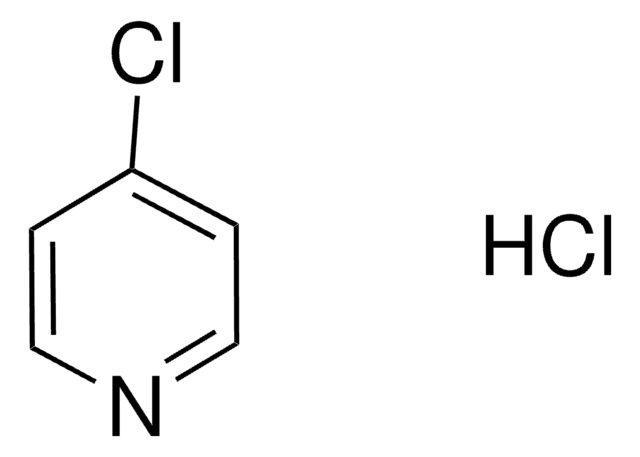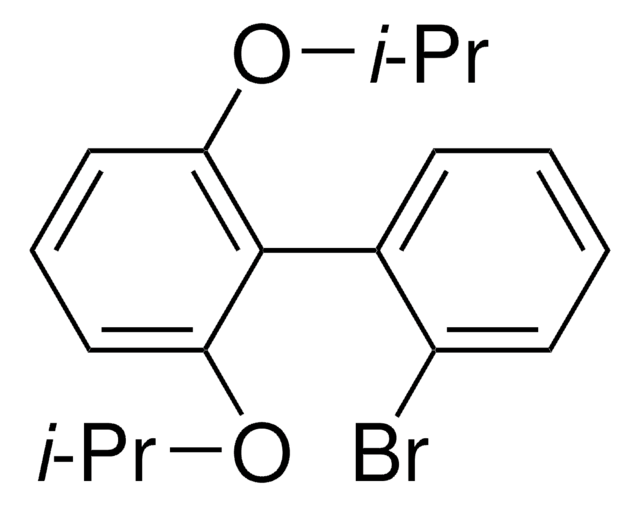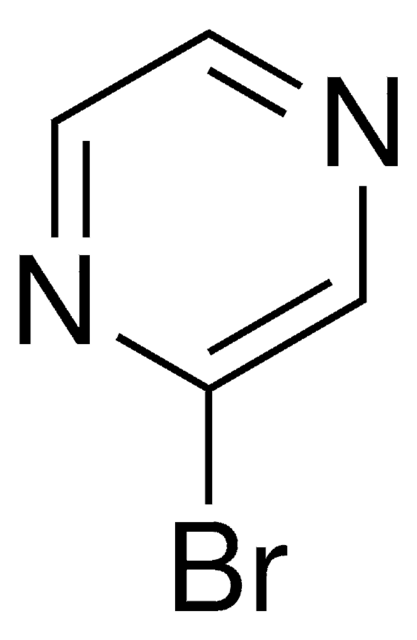B80429
4-Bromopyridine hydrochloride
99%
Synonym(s):
4-Bromopyridine monohydrochloride, 4-Bromopyridinium chloride
About This Item
Recommended Products
Assay
99%
form
crystals
mp
270 °C (dec.) (lit.)
SMILES string
Cl[H].Brc1ccncc1
InChI
1S/C5H4BrN.ClH/c6-5-1-3-7-4-2-5;/h1-4H;1H
InChI key
MPZMVUQGXAOJIK-UHFFFAOYSA-N
Looking for similar products? Visit Product Comparison Guide
Signal Word
Warning
Hazard Statements
Precautionary Statements
Hazard Classifications
Acute Tox. 4 Oral - Eye Irrit. 2 - Skin Irrit. 2 - STOT SE 3
Target Organs
Respiratory system
Storage Class Code
11 - Combustible Solids
WGK
WGK 3
Flash Point(F)
Not applicable
Flash Point(C)
Not applicable
Personal Protective Equipment
Certificates of Analysis (COA)
Search for Certificates of Analysis (COA) by entering the products Lot/Batch Number. Lot and Batch Numbers can be found on a product’s label following the words ‘Lot’ or ‘Batch’.
Already Own This Product?
Find documentation for the products that you have recently purchased in the Document Library.
Customers Also Viewed
Our team of scientists has experience in all areas of research including Life Science, Material Science, Chemical Synthesis, Chromatography, Analytical and many others.
Contact Technical Service










